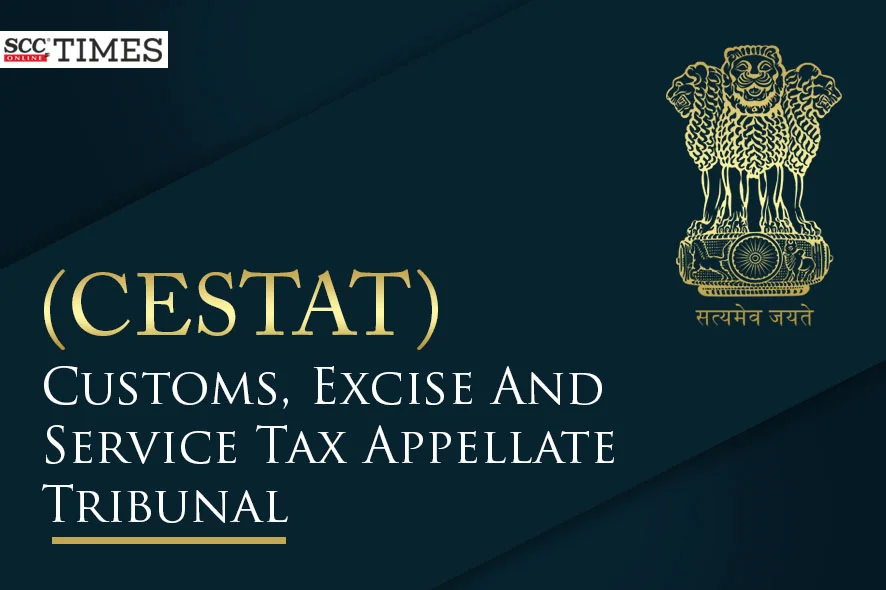Customs, Excise and Service Tax Appellate Tribunal, Ahmedabad: The issue involved in the present case was whether the product ‘Kopiko’, manufactured by the appellant was classifiable under Central Excise Tariff Heading (CETH) 1704 9090 “sugar confectionery not containing cocoa” or under CETH 2101 1200 “preparations with basis of extracts, essences, concentrates or with a basis of coffee”, as claimed by the Revenue. The bench of Ramesh Nair, Member (Judicial) and Raju, Member (Technical) stated that Kopiko contained more than 74% sugar and glucose and these ingredients were basis of the product, the flavour coffee was used only to the extent of 1.57% for giving flavour and not contribute to the main product i.e. confectionery. Therefore, by any imagination Kopiko could not be classified as “preparations with basis of extracts, essences, concentrates or with a basis of coffee” because Kopiko was not preparations with basis of coffee. The basis of the product was sugar and glucose and undisputedly the product was sugar confectionery not containing cocoa.
Thus, the Tribunal stated that the appellants product, Kopiko was correctly classifiable under “sugar confectionery not containing cocoa” and not under “preparations with basis of extracts, essences, concentrates or with a basis of coffee”.
Background
The appellant entered manufacturing by setting up manufacturing plant in Hyderabad in 2012 and Sanand, Gujarat in 2014 and was engaged in the distribution of food products like candy, biscuit and chocolate in India. In the said manufacturing facility, the appellant manufactured excisable goods, (i) hard boiled sugar and glucose confectionery sold under the brand name of Kopiko (Cappuccino and Espresso varieties), Juizy Milk (Mango and Strawberry), Tamarin; (ii) Chocolate confectionery sold under the brand name of Choki-Choki; and (iii) noodles under the brand name of JoyMee noodles.
The product in question, Kopiko, a hard-boiled sugar and glucose confectionery, was manufactured by the Hyderabad plant since September 2012 and Gujarat plant from November 2014. The officers of the Zonal units of the Directorate General of Central Excise intelligence, located at Hyderabad and Ahmedabad commenced investigations into classification of ‘Kopiko’ and accordingly two Show Cause Notices were issued.
In the show cause notices, it was alleged that “Kopiko (cappuccino and espresso varieties)” was classifiable under Chapter Heading 2101 1200 of the First Schedule to the Central Excise Tariff Act, 1985 as “preparations with basis of extracts, essences, concentrates or with a basis of coffee”, attracting 12% ad valorem plus education cesses. The appellant had misclassified goods under Chapter Heading 1704 9090 as “sugar confectionery not containing cocoa”, thereby short paying the Central Excise Duty.
The Commissioner of Central Excise Ahmedabad vide order dated 31-03-2017, imposed the demand of tax of Rs. 3,64,53,794 for November 2014 to July 2015 along with applicable interest and imposed the penalty of Rs. 36,45,379 under Section 11 AC(1)(a) of the Central Excise Act, 1944. Thus, the appellant filed the present appeal against the impugned order dated 31-03-2017.
Analysis, Law and Decision
To understand the nature of the product, the Tribunal after perusal of the ingredients and formula used in the manufacture of the Kopiko, stated that it was clear that Kopiko contained flavour coffee to the extent of 1.57 %, whereas the majority ingredients were refined sugar 33.06%, liquid glucose 41.41%, other ingredients constitute to 11.81% and water at the rate of 12.5%.
The Tribunal stated that Kopiko contained more than 74% sugar and glucose and these ingredients were basis of the product. The flavour coffee was used only to the extent of 1.57% for giving flavour and not contribute to the main product i.e. confectionery. Therefore, by any imagination Kopiko could not be classified as “preparations with basis of extracts, essences, concentrates or with a basis of coffee” as its preparations are not based on coffee . The basis of the product was sugar and glucose and undisputedly the product was sugar confectionery not containing cocoa.
Further, the Tribunal referred to the General Rules for interpretation of the Central Excise Tariff Act, 1944 and stated that even as per Rule 1, the classification should be determined according to the terms of the headings. On reading of both the headings i.e. 1704 and 2101, the Tribunal observed that the sugar boiled confectionery was specifically provided under 1704 9090. Therefore, the appellant’s goods were more specifically covered under “sugar confectionery”. The Tribunal further stated that the most specific description applied to the appellant’s product was the description given in heading 1704 because the sugar confectionery was specific product, whereas the preparations with basis of extracts/essences/concentrates or basis of coffee was more general description.
Thus, the Tribunal opined that the appellants product Kopiko was correctly classifiable under “sugar confectionery not containing cocoa” and not under “preparations with basis of extracts, essences, concentrates or with a basis of coffee”.
[Inbisco India (P) Ltd. v. CCE, 2024 SCC OnLine CESTAT 836, decided on 13-08-2024]
Advocates who appeared in this case:
For the Appellant: Prasad Pranjape, Advocate;
For the Respondent: Tara Prakash, Deputy Commissioner (Authorised Representative)






